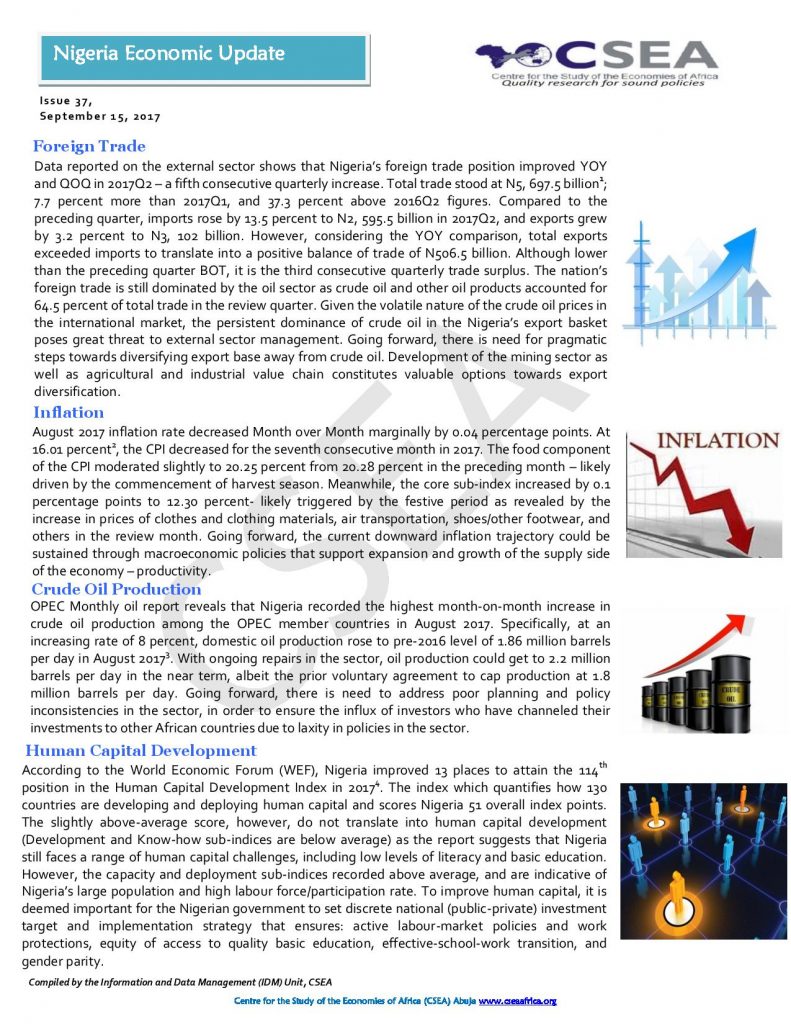Macroeconomic Report & Economic Updates

September 25, 2017
Nigeria Economic Update (Issue 37)
OPEC Monthly oil report reveals that Nigeria
recorded the highest month-on-month increase in crude oil production among the
OPEC member countries in August 2017. Specifically, at an increasing rate of 8
percent, domestic oil production rose to pre-2016 level of 1.86 million barrels
per day in August 2017. With ongoing repairs in the sector, oil
production could get to 2.2 million barrels per day in the near term, albeit
the prior voluntary agreement to cap production at 1.8 million barrels per day.
Going forward, there is need to address poor planning and policy
inconsistencies in the sector, in order to ensure the influx of investors who
have channeled their investments to other African countries due to laxity in
policies in the sector.
